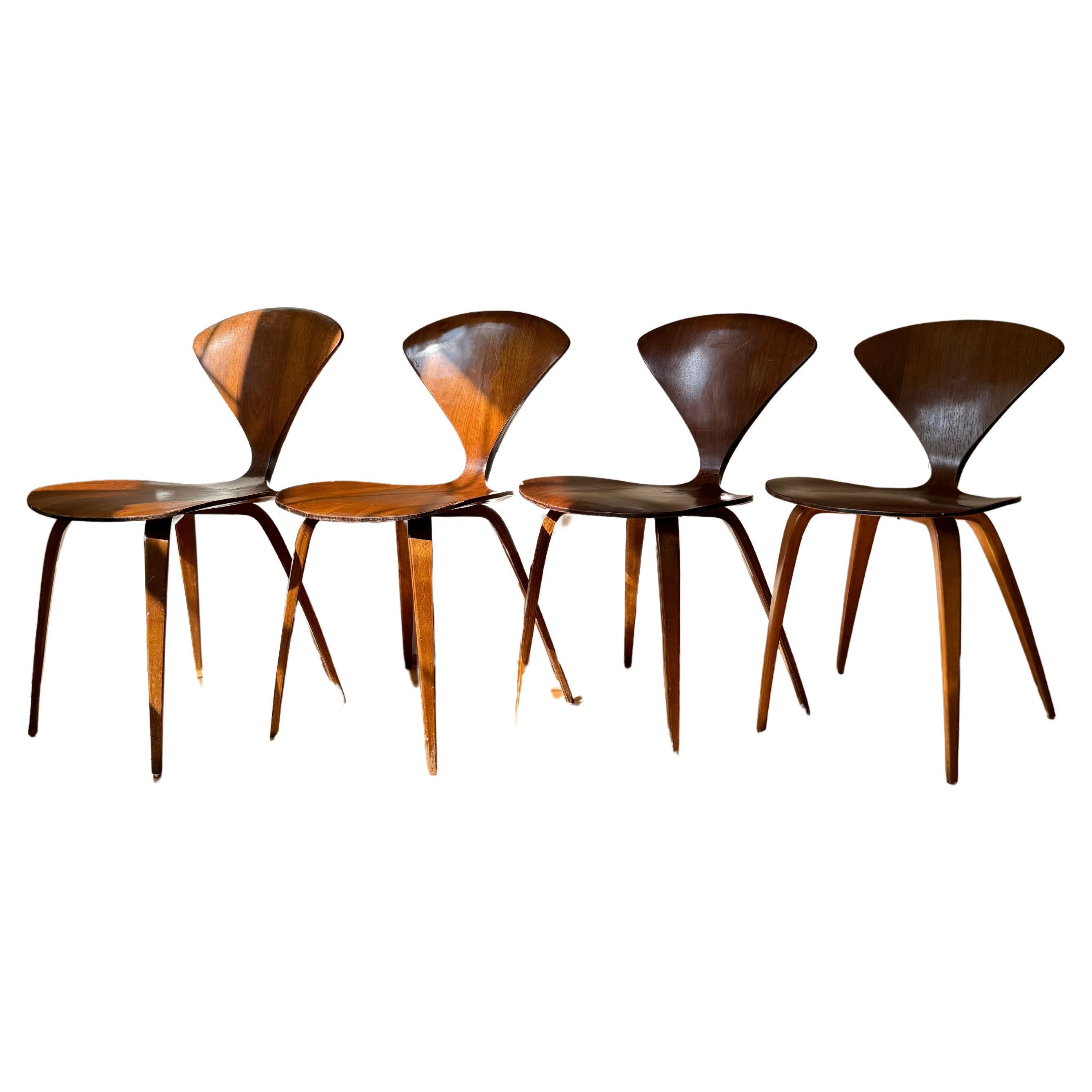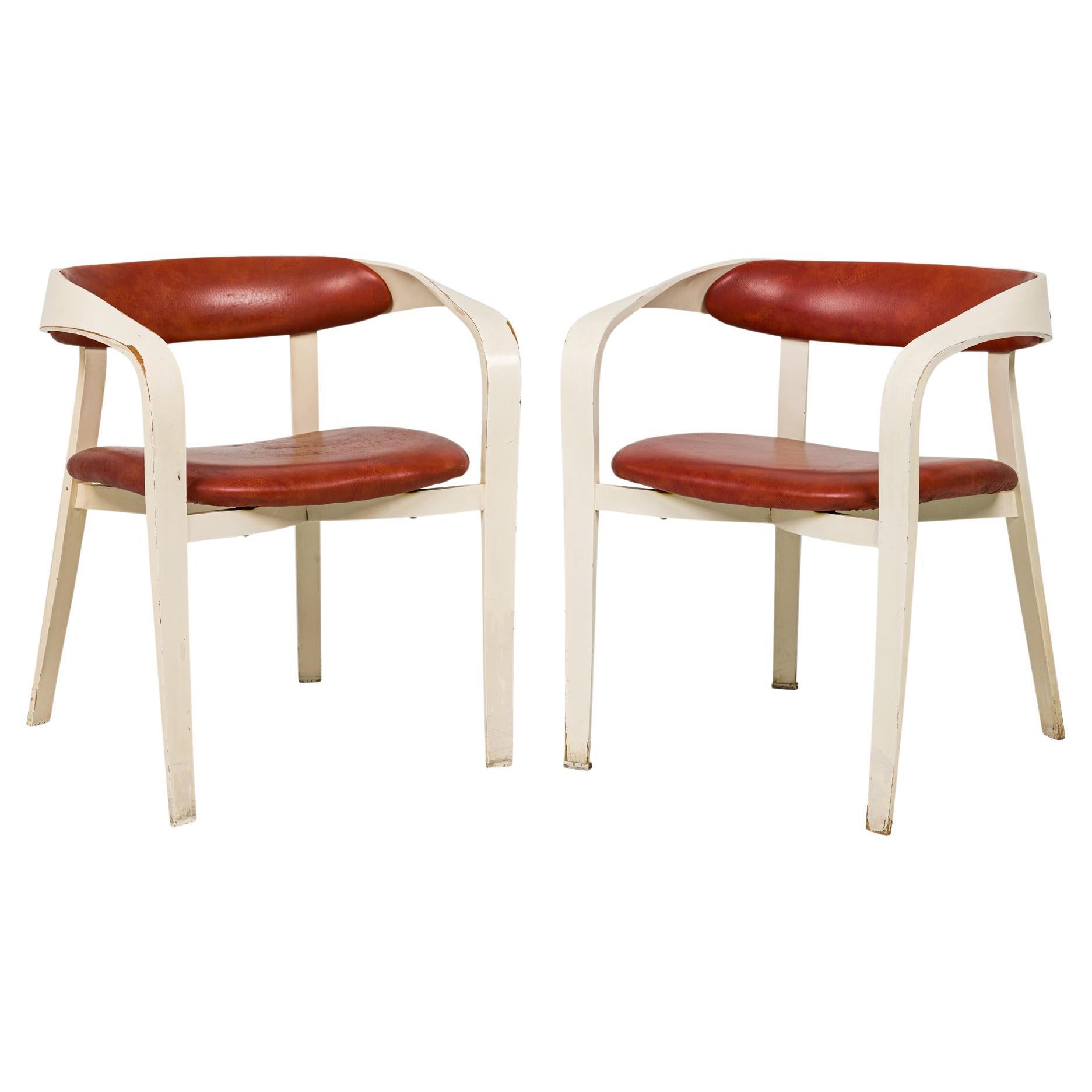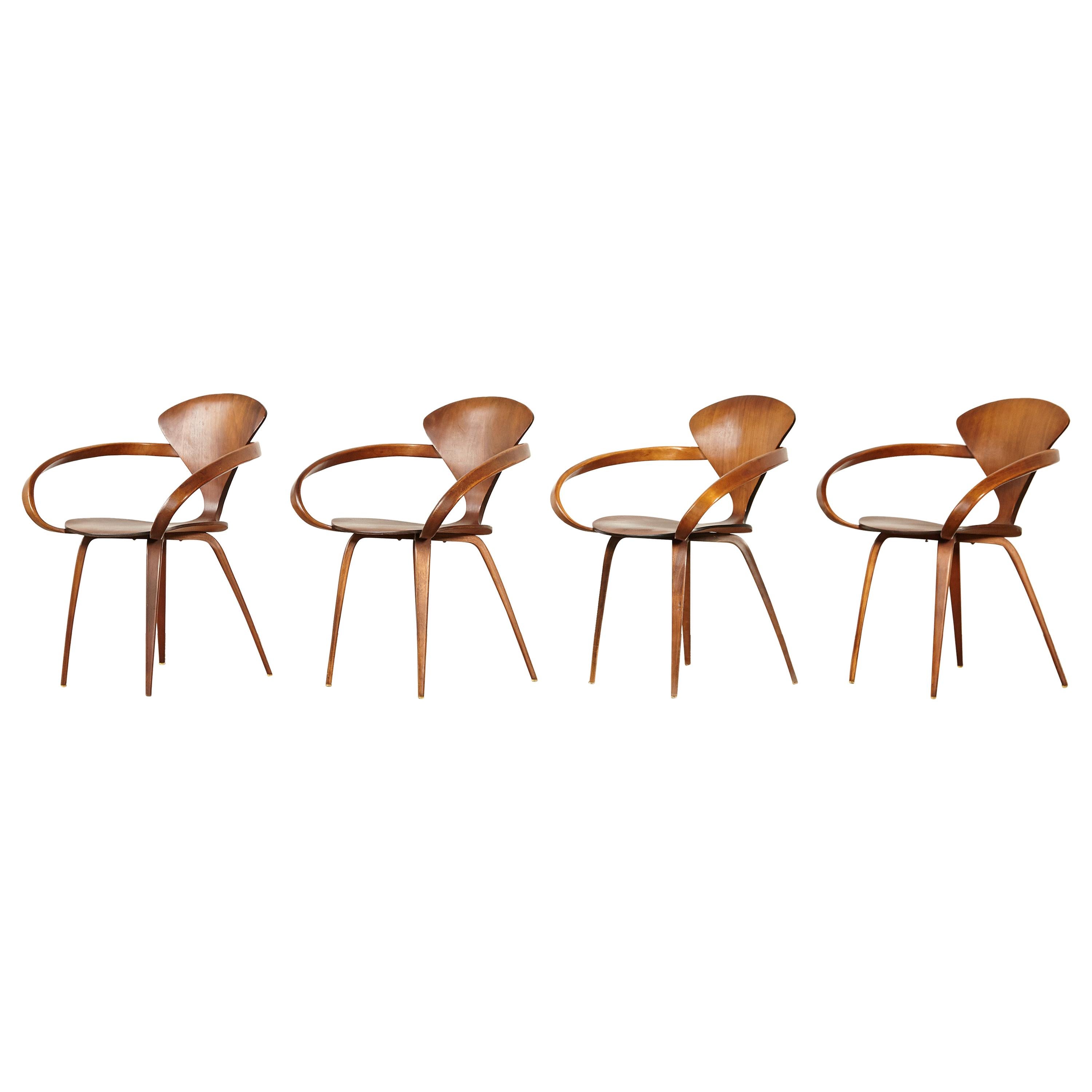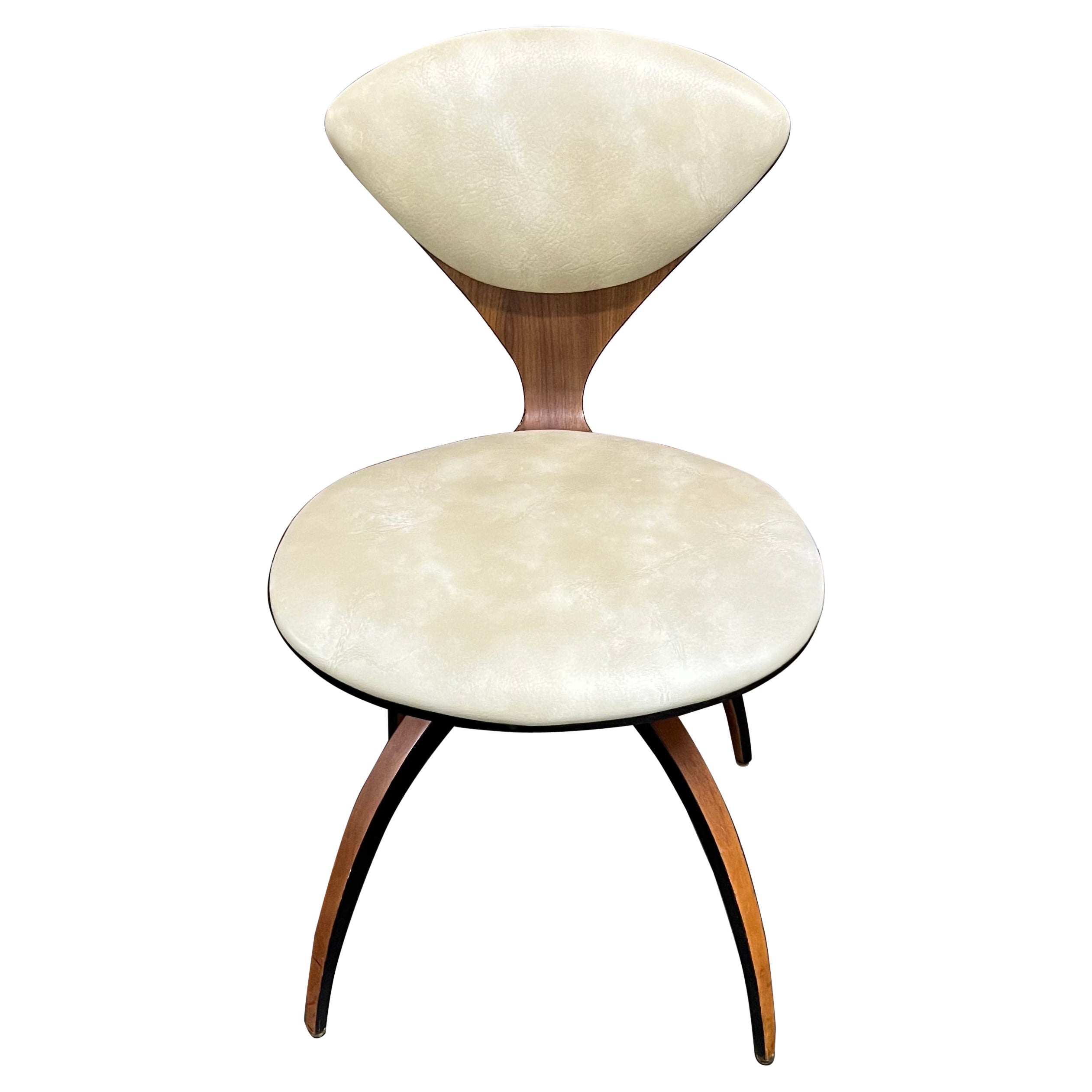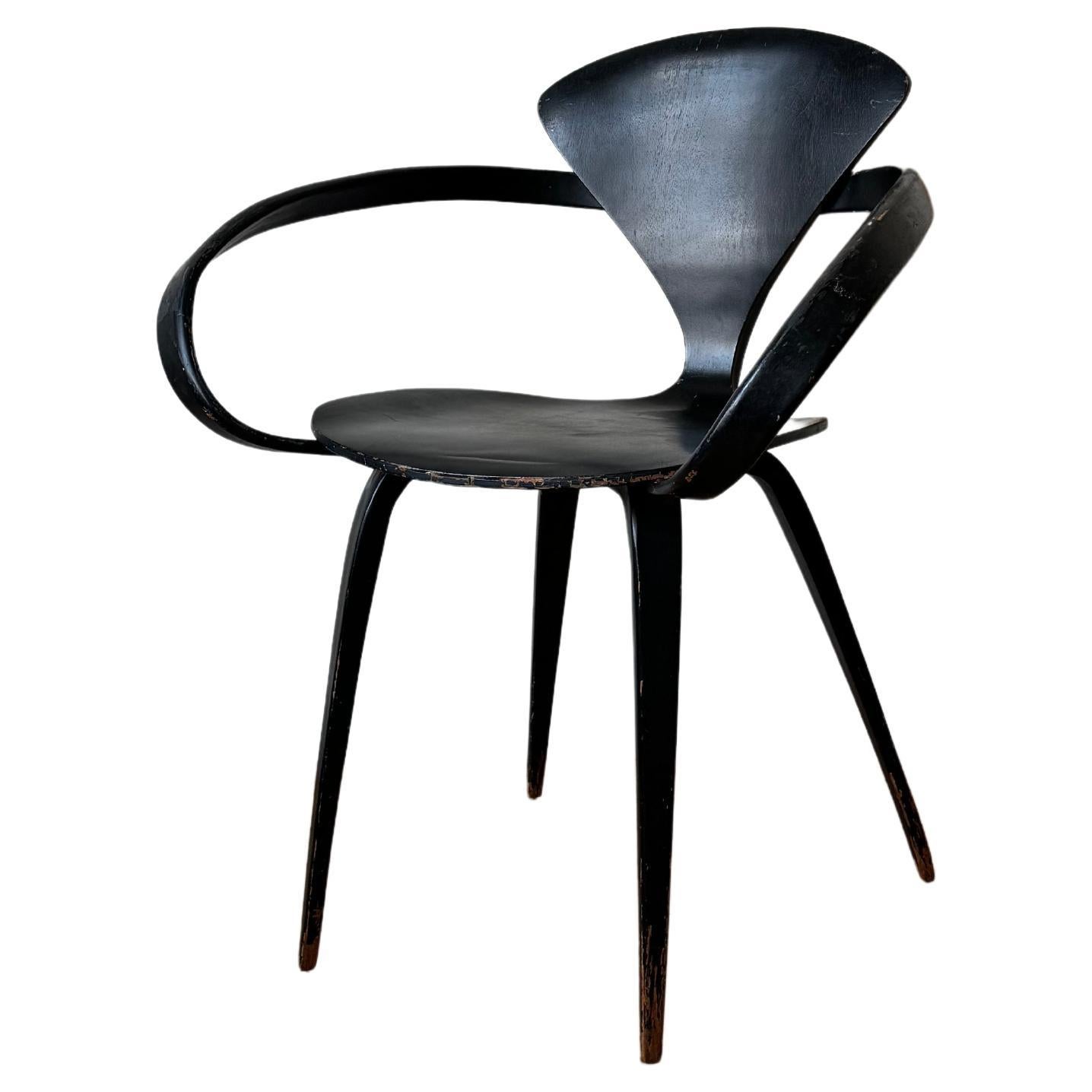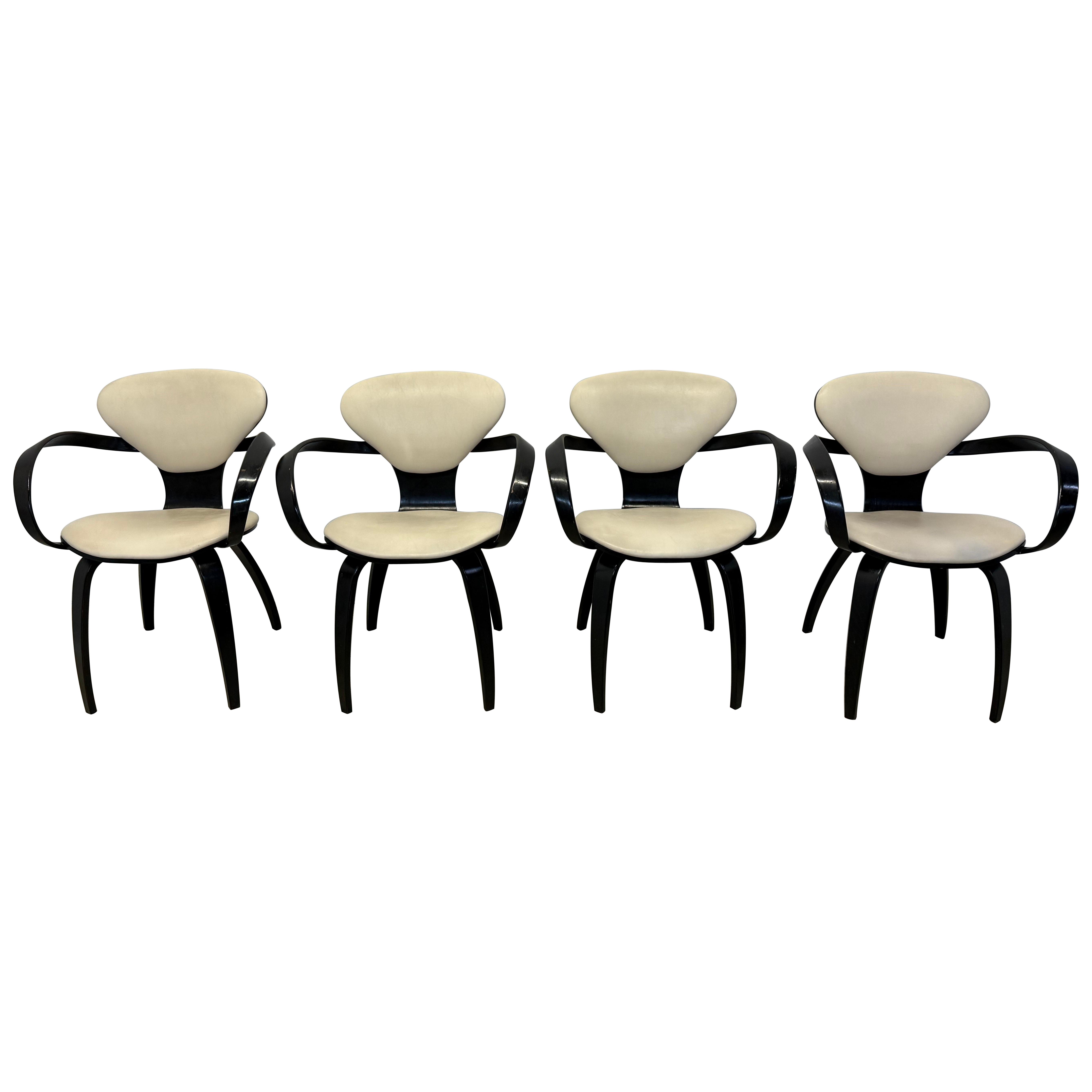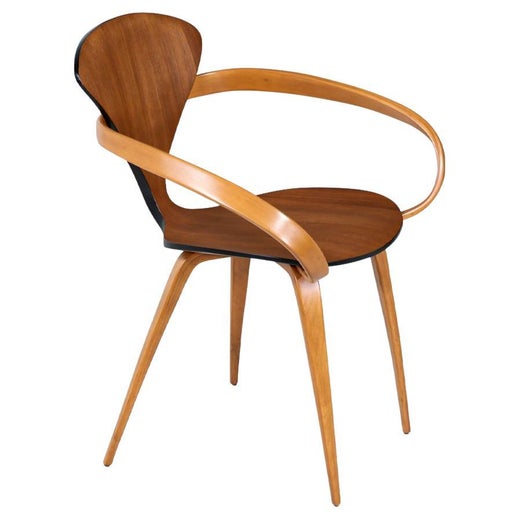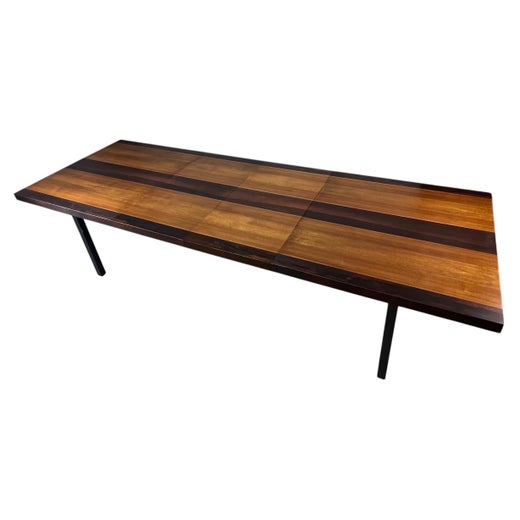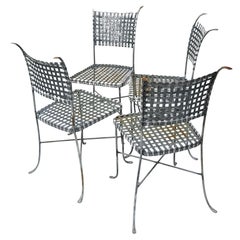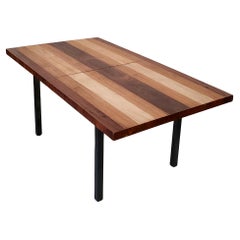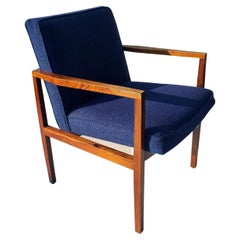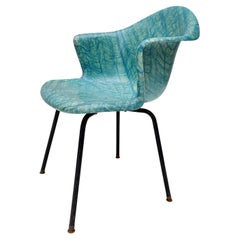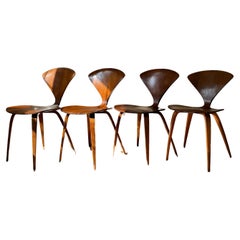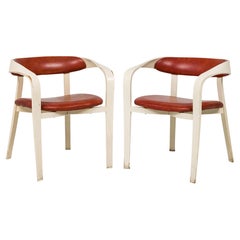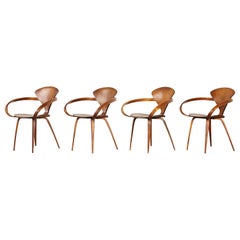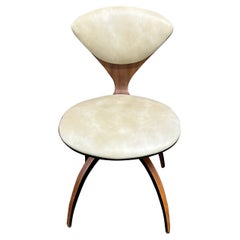Set of 4 Norman Cherner Directional Side Chairs Plycraft
About the Item
- Creator:
- Dimensions:Height: 31.5 in (80.01 cm)Width: 17 in (43.18 cm)Depth: 22 in (55.88 cm)Seat Height: 17 in (43.18 cm)
- Sold As:Set of 4
- Materials and Techniques:
- Period:
- Date of Manufacture:1960
- Condition:Refinished. Repaired: Some veneer chipping repairs. Wear consistent with age and use. Minor losses. Minor fading. Minimally invasive refinishing, with intent to save some patina.
- Seller Location:Fraser, MI
- Reference Number:1stDibs: LU6400238552562
Norman Cherner
Norman Cherner was an influential designer who explored postwar technological innovations and how to incorporate them into furniture production and architecture. And while its history is complicated, his Cherner chair is one of the most successful examples of mid-century modern molded plywood seating.
Born in New York City, Cherner was an architect and a prolific designer who taught at Columbia University’s Teachers College. An enthusiast of the Bauhaus, he gave lectures in the late 1940s on the principles of the legendary German design school at the Museum of Modern Art.
Cherner was fascinated with the concept of cost-efficient design, and this extended into his pioneering ideas for prefabricated housing. His philosophy was that a modular home should be a complete design concept that included economical furniture and lighting. He published several DIY books, such as How to Build a House for $6,000. Cherner caught the interest of a housing cooperative in upstate New York and was contracted to design and oversee the construction of prefabricated housing in the town of Ramapo. The U.S. Department of Housing assembled a pre-built Cherner home for exhibition in Vienna.
But he is best known for his chair.
In the 1950s, one of George Nelson’s designers, John F. Pile, created the Pretzel chair. It had structural problems and proved too costly to make at Herman Miller, where Nelson was director of design. Production was subcontracted to Massachusetts company Plycraft, but the agreement didn’t last long owing to a dispute between the furniture manufacturers. Based on a recommendation from Nelson, Plycraft sought out Cherner to redesign the chair so that it would be durable and affordable to produce.
Cherner submitted his redesign only to be told that Plycraft had shelved the project. However, Plycraft secretly began producing what would become the Cherner chair under a different name — and Cherner later stumbled across his seat in New York. Cherner sued Plycraft and won. The chair became instantly popular after being featured in a Norman Rockwell illustration for a Saturday Evening Post cover in September of 1961.
Other noteworthy Cherner designs include his Konwiser furniture line, Multiflex storage units and tube lighting. The Museum of Modern Art praised his Konwiser collection as “some of the most progressive furniture designs available to the American public.”
In 1972, Plycraft discontinued production of his chair, and Cherner died in 1987. In 1999, his two sons founded the Cherner Chair Company and began making furniture based on their father's original designs for armchairs, chairs — including the Cherner chair — tables and credenzas.
Find vintage Norman Cherner furniture on 1stDibs today.
Directional
A brand known to vintage mid-century modern furniture collectors everywhere, Directional Furniture opened its doors after American furniture designer Paul McCobb created the high-end Directional Modern line of sofas distributed by the New York–based Modernage Company.
In his pivotal introduction of postwar modernism to the mass market, the revered Massachusetts-born McCobb had established several lines, from the affordable and refined Planner Group for Winchendon to the swooping and unexpected arms of the Symmetric Group for Widdicomb, a Shaker-inspired collection that included a sofa and a lounge chair. Like all of McCobb’s designs, the Directional pieces for Modernage are defined by a sleek aesthetic in which the focus is on elegant functionality, frequently using fine materials such as brass and walnut. In 1949, in partnership with New York furniture salesman B.G. Mesberg, McCobb set up the Directional Furniture Company.
The pair’s first pieces were upholstered chairs, intended to harmonize with the modular Multiplex pieces designed by Martin Feinman. McCobb then designed an array of furniture including storage, dining, seating, desks and other pieces with details such as leather tops, wood finishes and Roman Travertine surfaces. While Directional stopped production of McCobb’s work in the early 1960s, it still released numerous pieces by leading designers manufactured by a variety of companies.
Designer Paul Evans led the factory for a time after joining in 1964. His provocative work for the company often reflected his understanding of materials from his early training as a silversmith, such as the popular Cityscape series — a milestone in brutalist design — with its blocky forms accented with brass and chrome. At his shop in Lambertville, New Jersey, he collaborated with a design team to clad furniture pieces in metallic surfaces, like the Argente line that began production in 1968 and involved an acetylene torch to give its aluminum material a textural quality. He also worked on the Sculpted Bronze series with hand-formed resin shaped over plywood or steel that was then coated with atomized bronze.
Other Directional designers included Vladimir Kagan, who contributed biomorphic sofas and swivel chairs; Milo Baughman, who created tables and dressers inspired by Scandinavian modernism; and Jack Lenor Larsen, who covered sofas in dynamically patterned fabric.
Find authentic Directional Furniture seating, tables, case pieces and storage cabinets from top sellers around the world on 1stDibs.
- ShippingRetrieving quote...Shipping from: Keego Harbor, MI
- Return Policy
More From This Seller
View AllVintage 1950s Chairs
Cut Steel, Wrought Iron
Vintage 1960s Dining Room Tables
Rosewood, Teak, Walnut
Vintage 1960s Chairs
Upholstery, Rosewood
Vintage 1950s Chairs
Steel
Vintage 1970s Dining Room Chairs
Fabric, Teak
Vintage 1960s Side Tables
Cast Stone
You May Also Like
Vintage 1950s American Mid-Century Modern Chairs
Bentwood
20th Century American Mid-Century Modern Dining Room Chairs
Wood, Upholstery
Mid-20th Century American Mid-Century Modern Dining Room Chairs
Wood
Mid-20th Century American Mid-Century Modern Chairs
Upholstery, Bentwood
Vintage 1950s American Mid-Century Modern Chairs
Bentwood
Mid-20th Century American Mid-Century Modern Dining Room Chairs
Faux Leather, Plywood
